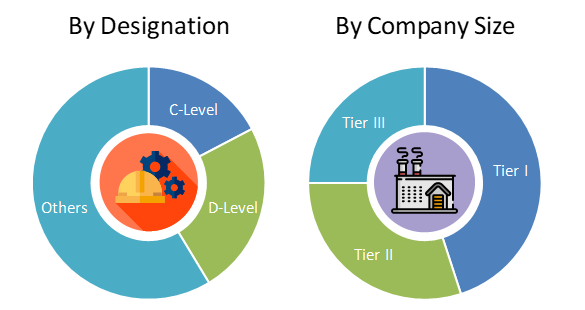| Status : Published | Published On : Nov, 2024 | Report Code : VRAT9638 | Industry : Automotive & Transportation | Available Format :

|
Page : 92 |

North America Electric Vehicle Market Size & Share | Growth Forecast Report 2030
Industry Insights By Component (Infotainment Systems, EV Battery Cells and Packs, Instrument Clusters, Onboard Chargers), By Propulsion Type (Plug-In Hybrid Electric Vehicles (PHEV), Battery Electric Vehicles (BEV), Fuel Cell Electric Vehicles (FCEV), Hybrid Electric Vehicles (HEV)), By Vehicle Type (Two-Wheelers, Passenger Cars (PC), Commercial Vehicles (CV)), By Power Output (Less Than 100 kW, 100 kW to 250 kW, and More Than 250 kW), By Vehicle Class (Mid-Priced, Luxury Vehicles), By EV Charging Points (Normal Charging, Supercharging), By Vehicle Drive Type ( Front-Wheel Drive, Rear-Wheel Drive, and All-Wheel Drive) and By Geography (United States, Canada, Mexico)
Industry Overview
The North America Electric Vehicle Market size was valued at USD 65 billion in 2023. It is likely to grow up to USD 220.5 billion by 2030 at a CAGR of 15.4% during the forecast period ranging between 2025 and 2030.With more developed technologies and improvements in the charging infrastructure fueling the market growth, the market shows higher growth possibilities with the rising adoption of these vehicles since users get easy access to charging their vehicles for their daily commute or long-distance travels.
.png)
Just as the name signifies, electric vehicles (EVs) are automobiles that have a motor that runs on electric. The necessary power is stored in rechargeable batteries and supplied to run the vehicle. These vehicles are significantly different from conventional automobiles as they do not run on fossil fuels and therefore emit carbon to pollute the air and environment. It is basically a safer, cleaner, and greener mode of transportation. These efficient vehicles are often equipped with advanced technologies such as regenerative braking, sophisticated battery systems for better energy management, and more efficient electric drivetrains. This improves range and charging times along with lower operating and maintenance costs. These vehicles are used extensively for public and personal transit, delivery services, and more.
North America Electric Vehicle Market Report Coverage
|
Report Metric |
Details |
|
Historical Period |
2018 - 2023 |
|
Base Year Considered |
2024 |
|
Forecast Period |
2025 - 2030 |
|
Market Size in 2024 |
U.S.D. 65 Billion |
|
Revenue Forecast in 2030 |
U.S.D. 220.5 Billion |
|
Growth Rate |
15.4% |
|
Segments Covered in the Report |
By Component, By Propulsion Type, By Vehicle Type, By Power Output, By Vehicle Class, By EV Charging Points and By Vehicle Drive Type |
|
Report Scope |
Market Trends, Drivers, and Restraints; Revenue Estimation and Forecast; Segmentation Analysis; Impact of COVID-19; Companies’ Strategic Developments; Market Share Analysis of Key Players; Company Profiling |
|
Regions Covered in the Report |
United States, Canada, Mexico |
North America Electric Vehicle Industry Dynamics
North America Electric Vehicle Market Trends/ Growth Drivers:
Supportive government incentives and strict regulations
The initiatives of the governments to lower the cost of these vehicles and offering rebates and tax credits to promote more investments are two major factors that propel the growth of the North America electric vehicle market. In addition, there is a notable trend to impose strict regulations on emission and environmental pollution that further drives the adoption of electric vehicles across the region.
Also, the rising consumer awareness about the environmental impacts and the benefits of using EVs have pushed their demand to reduce carbon footprint further to facilitate market expansion. Significant improvements in battery technology driving innovation and better energy density. Management, and charging speed is also fueling the market growth due to higher affordability and performance levels of the EVs. Furthermore, factors like rising preference for EVs especially in the corporate fleet sector and higher sustainability initiatives results in higher adoption to enjoy operational cost benefits and meeting corporate social responsibility (CSR). Transition to electric vehicles by major automakers is also driving innovation and market expansion.
North America Electric Vehicle Market Challenges
Inadequate charging stations and setup limitations
Lack of adequate charging stations and limited infrastructure is some rural regions in particular poses significant challenge to the growth of the North America electric vehicle (EV) market. This typically results in anxiety among the potential buyers of EVs regarding losing charges and their vehicles shutting down in the middle of their daily commute or long-distance travels. This hinders widespread adoption, sales and growth of the market. The high initial cost of purchasing these vehicles is another significant factor that deters widespread adoption of EVs. Furthermore, misconceptions among users regarding performance, range, and charging times along with issues with integrating new technologies into the existing system also impedes adoption of EVs and market growth. Moreover, need for additional electricity and issues with supply chain for supply of crucial battery components such as cobalt and lithium also affects production and inflates cost of production and impacts availability.
North America Electric Vehicle Market Opportunities
Rising consumer demand and sustainability
Despite the challenges, the North America electric vehicle market shows immense growth potential during the forecast period mainly due to the rising consumer demand of these vehicles and sustainability in transportation. It is attributed to the rising consumer awareness regarding environmental impacts, climate changes, and benefits of these eco-friendly transportation alternatives. As a result, automobiles and energy companies are innovating new methods to improve their offerings and expend their reach. Continual technological developments in battery systems, charging solutions and infrastructure, improved performance, higher adoption of EVs in corporate and public fleets, strategic collaborations between government and private companies to expand accessibility, and developing market segments such as electric buses and commercial vehicles are also presenting novel growth opportunities to the market.
North America Electric Vehicle Market Segmentation
VynZ Research provides an analysis of the key trends in each segment of the North America Electric Vehicle Market report, along with forecasts at the regional and country levels from 2025-2030. Our report has categorized the market based on Component, Propulsion Type, Vehicle Type, Power Output, Vehicle Class, EV Charging Points and Vehicle Drive Type.
Insight by Component
- Infotainment Systems
- EV Battery Cells and Packs
- Instrument Clusters
- Onboard Chargers
The EV battery cells and packs segment dominates due to higher share
Based on the components used in the EV, the North America electric vehicle market is divided into Infotainment Systems, EV Battery Cells and Packs, Instrument Clusters, and Onboard Chargers. Out of all these segments, the EV battery cells and packs segment dominates the market due to higher share. It is also attributed to the relatively lower cost and ability to promote vehicle performance due to the higher focus on the manufacturers on improving battery performance and solid-state batteries.
Insight by Propulsion Type
- Plug-In Hybrid Electric Vehicles (PHEV)
- Battery Electric Vehicles (BEV)
- Fuel Cell Electric Vehicles (FCEV)
- Hybrid Electric Vehicles (HEV).
The BEV segment dominates due to higher government initiatives
The North America electric vehicle market is also divided by the propulsion type into Plug-In Hybrid Electric Vehicles (PHEV), Battery Electric Vehicles (BEV), Fuel Cell Electric Vehicles (FCEV), and Hybrid Electric Vehicles (HEV). Out of all these segments, the BEV segment dominates and is expected to grow at a higher CAGR during the forecast period due to higher government initiatives, better charging infrastructure, and rising consumer preference for eco-friendly vehicles.
Insight by Vehicle Type
- Two-Wheelers
- Passenger Cars (PC)
- Commercial Vehicles (CV)
The passenger cars segment dominates due to rising consumer awareness
According to the vehicle type, the North America electric vehicle market is divided into Two-Wheelers, Passenger Cars (PC), and Commercial Vehicles (CV) segments, where the passenger cars segment is anticipated to grow more and dominate due to rising consumer awareness regarding environmental impacts, growing demand for fuel-efficient and zero-emission vehicles.
Insight by Power Output
- Less Than 100 kW
- 100 kW to 250 kW
- More Than 250 kW
The 100 kW to 250 kW segment leads due to the growing adoption
The North American electric vehicle market is categorized by power output into Less Than 100 kW, 100 kW to 250 kW, and More Than 250 kW segments. Out of them the 100 kW to 250 kW segment dominates and grow at a higher compound annual growth rate (CAGR) during the study period due to the growing adoption of electric vehicles like buses and trucks in public transportation and freight services and rising initiatives to reduce emission and improve air quality.
Insight by Vehicle Class
- Mid-Priced
- Luxury Vehicles
The mid-priced segment dominates due to rising consumer demand
Based on the vehicle class, the North American electric vehicle market is categorized into Mid-Priced and Luxury Vehicles segments, where the former segment is expected to dominate due to rising consumer demand for an affordable mode of transportation. It is also attributed to the growing emphasis of the manufacturers to offer essential features and cost-effective and attractive models.
Insight by EV Charging Points
- Normal Charging
- Supercharging
The supercharging segment leads the market due to growing demand
The North American electric vehicle market is divided by EV charging points into Normal Charging and Supercharging segments with the supercharging segment leading the market due to growing demand for faster charging solutions to allow long-distance travels and adoption due to development of charging networks, integration of advanced technology.
Insight by Vehicle Drive Type
- Front-Wheel Drive
- Rear-Wheel Drive
- All-Wheel Drive
The rear-wheel drive segment rules due to higher demand
The North American electric vehicle market is also split by the vehicle drive type into Front-Wheel Drive, Rear-Wheel Drive, and All-Wheel Drive categories. Out of them the rear-wheel drive segment is expected to grow more due to higher demand, better performance and handling,especially for larger vehicles like SUVs and trucks. It is also attributed to the rising consumer preferences for better driving dynamics, developments in electric drivetrain technology.
North America Electric Vehicle Market: Geographic Overview
The United States dominates the North American electric vehicle market mainly due to the well-established charging infrastructure, supportive government initiatives, rising consumer awareness, and strict environmental policies especially in regions like California.
Canada, on the other hand, shows higher growth prospects due to higher commitment towards regulating carbon emissions, favourable government policies and initiatives, growing investments in charging infrastructure and networks, as well as renewable energy.
Mexico is also a rapidly emerging market with huge growth promises due to promotion of cleaner transportation by governments, growing consumer awareness, and higher emphasis on local manufacturing and assembly.
Competitive Insights of North America Electric Vehicle Market :
- Tesla
- Daimler AG
- Volkswagen
- Ford Motor Company
- Canoo
- Nissan
- Hyundai
- Honda Motor
- BMW
- General Motors
- TOYOTA MOTOR CORPORATION
- Mitsubishi Motors Corporation
PRIMARY RESEARCH INTERVIEWS - BREAKDOWN

Frequently Asked Questions
Purchase Options
Latest Report
Research Methodology
- Desk Research / Pilot Interviews
- Build Market Size Model
- Research and Analysis
- Final Deliverabvle
Connect With Our Sales Team
- Toll-Free: 1 888 253 3960
- Phone: +91 9960 288 381
- Email: enquiry@vynzresearch.com
North America Electric Vehicle Market
